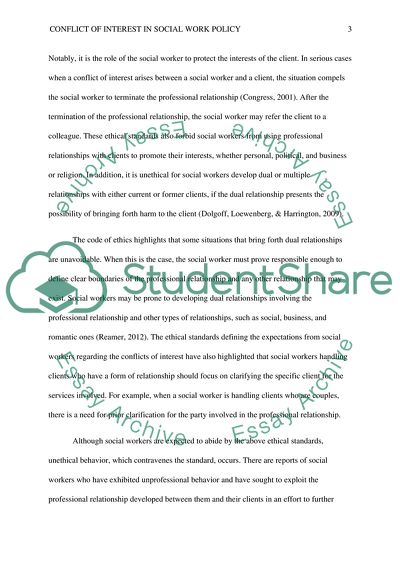Cite this document
(“Conflict of interest in social work policy Case Study”, n.d.)
Retrieved from https://studentshare.org/social-science/1659785-conflict-of-interest-in-social-work-policy
Retrieved from https://studentshare.org/social-science/1659785-conflict-of-interest-in-social-work-policy
(Conflict of Interest in Social Work Policy Case Study)
https://studentshare.org/social-science/1659785-conflict-of-interest-in-social-work-policy.
https://studentshare.org/social-science/1659785-conflict-of-interest-in-social-work-policy.
“Conflict of Interest in Social Work Policy Case Study”, n.d. https://studentshare.org/social-science/1659785-conflict-of-interest-in-social-work-policy.


